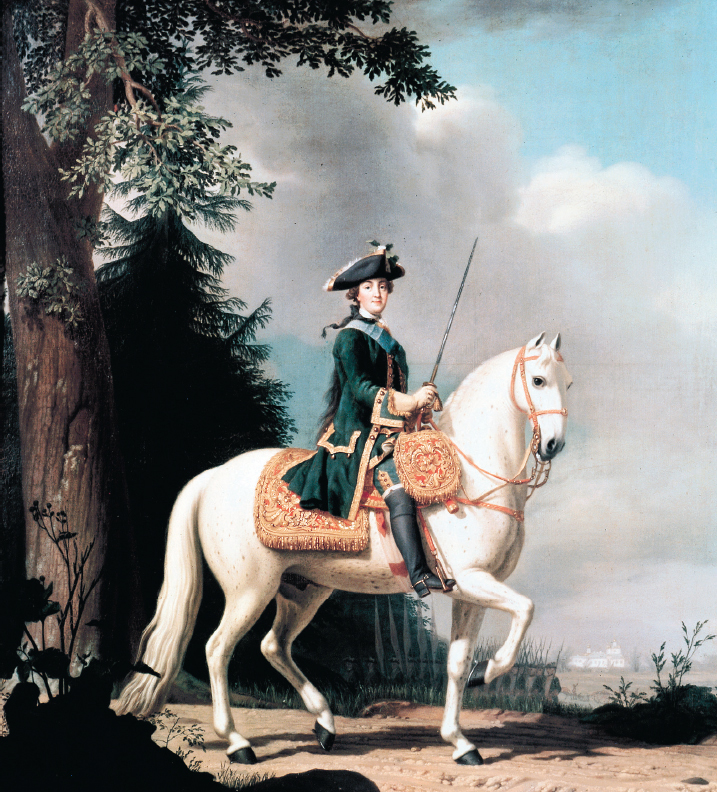
Catherine the GreatStrongly influenced by the Enlightenment, Catherine the Great cultivated the French philosophes and instituted moderate reforms, only to reverse them in the aftermath of Pugachev’s rebellion. This equestrian portrait now hangs above her throne in the palace throne room in St. Petersburg. (Musée des Beaux-Arts, Chartres/The Bridgeman Art Library)
MMANY GOVERNMENT OFFICIALS were interested in philosophical ideas. They were among the best-educated members of society, and their daily involvement in complex affairs of state made them naturally attracted to ideas for improving human society. Encouraged and instructed by these officials, some absolutist rulers tried to reform their governments in accordance with Enlightenment ideals — what historians have called the enlightened absolutism of the later eighteenth century. The most influential of the new-style monarchs were in Prussia, Russia, and Austria, and their example illustrates both the achievements and the great limitations of enlightened absolutism. France experienced its own brand of enlightened absolutism in the contentious decades prior to the French Revolution (see Chapter 19).

